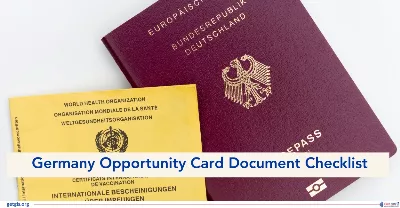Masters in Switzerland 2025: Top Courses, Universities & Tuition Fees
Updated On
-
Copy link
Discover world-class education and research opportunities with a Masters in Switzerland, home to top-ranked universities and innovative programs. This blog provides details on top universities, their fees, requirements, and job prospects after graduation.
Limited-time offer : Access a free 10-Day IELTS study plan curated for you

Table of Contents
- Why Study Masters in Switzerland?
- Top Universities in Switzerland for Masters Programs
- Popular Courses for Masters in Switzerland for Indian Students
- Eligibility Criteria for Masters in Switzerland
- Documents Required for Master's Degree in Switzerland
- How to Apply for Masters in Switzerland?
- Cost of Masters in Switzerland for International Students
- Top 9 Scholarships for Masters in Switzerland
- Post-Study Work Opportunities in Switzerland
- Do You Have What It Takes to Study Abroad in Switzerland?
Switzerland is home to some of the world’s top-ranked universities, including ETH Zurich, which ranks 7th globally (QS World University Rankings 2025). Known for its strong academic structure, multilingual environment, and research-driven education, pursuing a Masters in Switzerland offers international students access to cutting-edge programs in science, technology, and finance.
Over 40% of Switzerland’s student population is international, highlighting its global appeal and inclusive education system. Tuition fees in public universities range from CHF 1,000 to CHF 2,000 per year. The Swiss government also offers several scholarships to support graduate-level international students. With that in mind, let’s explore everything you need to know about pursuing a master’s degree in Switzerland.
Why Study Masters in Switzerland?
Switzerland stands out as a top destination for graduate education due to its academic excellence, safety, and global appeal. From world-class institutions to a rich multicultural environment, it offers everything an international student might seek. Here’s why studying masters in Switzerland is beneficial.
- Top-Ranked Universities: Switzerland hosts globally acclaimed institutions like ETH Zurich, ranked 7th worldwide in the QS World University Rankings 2025.
- Wide Range of Programs: With over 3,000 degree programs, including 700 taught in English, students have access to a broad spectrum of academic disciplines.
- Multicultural Environment: Approximately 25% of Switzerland’s population is foreign, fostering a diverse and inclusive atmosphere ideal for global learners.
- Global Research Opportunities: Swiss universities are known for strong industry links and research facilities, particularly in fields like engineering, finance, and life sciences.
- High Level of Safety: Switzerland ranks as the 10th safest country in the world, offering a secure and peaceful setting for academic and personal growth.
Also Read: Switzerland Top Universities : A Comprehensive Guide
Top Universities in Switzerland for Masters Programs
Switzerland is known for its prestigious universities that offer world-class master’s programs across disciplines. These institutions are popular for their academic excellence, research innovation, and international recognition. Here is a list of the top 10 universities for masters in Switzerland.
|
University Name |
QS World University Ranking |
Average Tuition Fees (CHF) |
Popular Master’s Courses |
|
ETH Zurich |
7 |
1,740 |
Mechanical Engineering, Computer Science, Architecture |
|
EPFL |
26 |
1,560 |
Robotics, Data Science, Electrical Engineering |
|
University of Zurich |
109 |
1,440 |
Economics, Neurosciences, Law |
|
University of Basel |
131 |
1,700 |
Pharmaceutical Sciences, Chemistry, Public Health |
|
University of Geneva |
155 |
10,400 |
International Relations, Business Analytics, Environmental Science |
|
University of Bern |
161 |
1,420 |
Biomedical Science, Physics, Sustainable Development |
|
University of Lausanne (UNIL) |
224 |
1,160 |
Finance, Forensic Science, Political Science |
|
Università della Svizzera Italiana (USI) |
405 |
8,000 |
Informatics, Marketing, Media Management |
|
University of Fribourg |
559 |
1,440 |
Theology, European Law, Environmental Sciences |
|
University of St. Gallen (HSG) |
- |
2,830 |
International Management, Banking and Finance, Economics |
Check Out: Public Universities in Switzerland
Popular Courses for Masters in Switzerland for Indian Students
Switzerland offers a variety of courses tailored to global industry demands and research opportunities. Here are some popular courses for masters in Switzerland for international students along with their specializations.
- Engineering
- Mechanical Engineering
- Electrical Engineering
- Robotics and Automation
- Civil Engineering
- Business and Management
- International Business
- Finance and Banking
- Marketing Management
- Supply Chain Management
- Computer Science and IT
- Data Science
- Artificial Intelligence
- Cybersecurity
- Software Engineering
- Life Sciences and Health
- Biomedical Science
- Pharmaceutical Sciences
- Public Health
- Environmental Science
- Social Sciences and Humanities
- International Relations
- Political Science
- Economics
- Psychology
- Hospitality and Tourism Management
- Luxury Brand Management
- Event Management
- Sustainable Tourism
Explore: Switzerland Study Visa Requirements 2025: Eligibility & Process
Eligibility Criteria for Masters in Switzerland
Admission into MSc programs at Switzerland universities is based on specific eligibility criteria and requirements, although they may vary across institutions. This guide outlines the key requirements for international students looking to pursue a master's degree in Switzerland
Bachelor's Degree
- An undergraduate degree from a recognized university is a fundamental requirement for admission to MSc programs in Switzerland.
- Typically, your bachelor's degree should be in the same or a related subject area as your intended master's program.
Language Requirements
- Proficiency in the language of instruction is crucial. In Switzerland, English and German are commonly used languages for master's programs.
- You must provide proof of your language proficiency through standardized tests. The acceptable test scores are
- TOEFL: 80-100 and IELTS: 5.5-7.0
GMAT/GRE Score
- For MBA and related management courses, many universities in Switzerland require a competitive GMAT or GRE score as part of their admission criteria.
- The GMAT score typically falls within the range of 640 to 690 for admission to top Swiss universities.
Work Experience
- Some Swiss universities may require applicants to have a certain amount of work experience in a relevant field, especially for professional or executive master's programs.
- Work experience requirements can vary significantly between courses and institutions, so it's essential to check the specific prerequisites for your program.
Passport and Visa
- To study in Switzerland as an international student, you must possess a valid passport and obtain the necessary student visa.
- It's advisable to initiate your visa application at least 3 months before your intended date of travel.
Quick Read: TOEFL vs IELTS - Which is Better?: A Comparative Analysis
Documents Required for Master's Degree in Switzerland
Admission to universities in Switzerland for a Master's degree requires submitting several documents. Here are some of the commonly required documents:
- Academic Transcripts
- Updated Resume
- Letter of Recommendation (LOR)
- Statement of Purpose (SOP)
- IELTS/TOEFL/GMAT scorecards
- Work experience certificate (if applicable)
How to Apply for Masters in Switzerland?
The process to apply to Switzerland universities for masters is quite straightforward if done in a structured approach. The step-by-step guide to studying for a Master's in Switzerland at top universities:
Step 1: Select the Master’s Course: Finalize the Master’s course you want to pursue and identify the best universities in Switzerland offering that course.
Step 2: Research and Gather Information: Visit the official website of the chosen university to gather all relevant information regarding eligibility and the admission process.
Step 3: Upload Documents: Scan and upload all required documents, including transcripts, CV, IELTS/TOEFL, and GMAT/GRE scorecards.
Step 4: Submit Application and Pay Fee: Complete the application form and pay the required fee.
Step 5: Attend the Interview: Participate in an interview with university directors. This is an excellent opportunity to showcase your soft skills and presence of mind.
Step 6: Receive Conditional Offer: If you clear the interview, you will receive a conditional offer letter. You can then secure your seat at the university.
Step 7: Pay the Deposit: Agree to the university's terms and conditions and pay the non-refundable deposit to confirm your admission.
Also Read: GMAT vs GRE: Which is the One for You?
Cost of Masters in Switzerland for International Students
A Masters in Switzerland costs quite reasonably compared to popular study-abroad destinations such as the US and the UK. The overall cost of Masters in Switzerland can be divided into two main categories: Tuition Fees and Cost of Living.
Tuition Fees
Tuition fees for masters in Switzerland differ based on the institution. Here’s a breakdown of average annual tuition fees for international students at Swiss universities.
|
Cost Type |
Average Tuition Fee (CHF) |
Average Tuition Fee (INR) |
|
Public Universities |
1,000 - 2,000 |
1,02,447 - 2,04,895 |
|
Private Universities |
10,000 - 20,000 |
10,24,475 - 20,48,950 |
|
Additional Fees |
100 - 500 |
10,244 - 51,223 |
Explore: Cost of Studying in Switzerland 2025: Universities, Fees & Expenses
Cost of Living
Apart from tuition fees, international students must also consider living expenses while studying for a masters in Switzerland. The cost of living varies by city but generally includes accommodation, food, transport, and health insurance. Here's a breakdown of the average cost of living for international students.
|
Expense Category |
Average Annual Cost (CHF) |
Average Annual Cost (INR) |
|
Rent (1-bedroom apartment in the city center) |
18,000 - 30,000 |
18,44,055 - 30,73,425 |
|
Utilities (Electricity, Heating, Cooling, Water, Garbage) |
1,200 - 2,400 |
1,22,937 - 2,45,874 |
|
Groceries |
4,000 - 6,000 |
4,09,790 - 6,14,685 |
|
Public Transportation |
800 - 1,500 |
81,958 - 1,53,671 |
|
Dining Out |
2,500 - 4,500 |
2,56,118 - 4,61,013 |
|
Health Insurance |
1,200 - 1,800 |
1,22,937 - 1,84,405 |
Check Out: Ultimate Guide on How To Study Abroad on a Budget
Top 9 Scholarships for Masters in Switzerland
To assist in funding for Masters in Switzerland for international students, there are numerous scholarships available, both governmental and non-governmental. Below are the details of some of the top scholarships for a Masters degree in Switzerland for international students, including those pursuing an MS in Switzerland for Indian students.
|
Scholarship Name |
Eligibility |
Grant Amount |
|
Swiss Government Excellence Scholarships |
Indian students with a Bachelor’s degree |
Tuition fees, health insurance and monthly stipend |
|
ETH Zurich Excellence Scholarship & Opportunity Programme (ESOP) |
Outstanding students with excellent academic records |
Tuition fee waiver, living allowance |
|
EPFL Excellence Fellowships |
Outstanding international students |
CHF 16,000 per year |
|
University of Geneva Excellence Master Fellowships |
Students with outstanding academic records |
CHF 10,000 to CHF 15,000 per year |
|
University of Lausanne (UNIL) Master’s Grants |
Students with a Bachelor's degree from a foreign university |
CHF 1,600 per month |
|
Graduate Institute Geneva Scholarships |
Students from all over the world |
Tuition waiver, living expenses |
|
IMD MBA Scholarships |
Talented professionals with significant achievements |
Various (up to CHF 85,000) |
Also Read: Best Government Funded Study Abroad Scholarships for Indian Students in 2025
Post-Study Work Opportunities in Switzerland
Switzerland is part of the Schengen area, so a specific post-study work visa does not exist. However, international students can stay in Switzerland after graduation with a residence permit, which allows them to remain in the country for 6 months.
During this time, graduates can explore job opportunities in Switzerland that align with their qualifications, offering a valuable opportunity to gain professional experience in Switzerland.
|
Job Title |
Average Annual Salary (CHF) |
Average Annual Salary (INR) |
|
Surgeons |
240,000 - 705,000 |
2,45,87,400 - 7,22,25,487 |
|
Marketing Directors |
86,300 - 254,000 |
88,41,219 - 2,60,21,665 |
|
Business Administrator |
90,000 - 110,000 |
92,20,275 - 1,12,69,225 |
|
Product Engineer |
65,000 - 94,000 |
66,59,087 - 96,30,065 |
|
Web Designer |
35,000 - 65,000 |
35,85,662 - 66,59,087 |
|
Certified Nurse |
45,000 - 70,000 |
46,10,137 - 71,71,325 |
Quick Read: Switzerland Jobs for Indians: Highest Paying Jobs, Tips for Job Search, Top Job Portals, and More
Do You Have What It Takes to Study Abroad in Switzerland?
Studying Masters in Switzerland can be a transformative experience, offering world-class education and cultural enrichment. As you have learned from the eligibility requirements outlined above, obtaining admission to Swiss universities demands careful planning and dedication.
To make your journey even smoother, consider partnering with GetGIS, a trusted resource for aspiring international students. Our consultants provide you with an array of invaluable services, including post-landing support, assistance with crafting an SOP, mock interviews, and real-time tracking software to monitor your application's progress.
Quick Links for You:
Limited-time offer : Access a free 10-Day IELTS study plan curated for you

Frequently Asked Questions
What makes Switzerland an attractive destination for Master's studies?
Are there scholarships available for international students pursuing a Master's in Switzerland?
What is the duration of a Master's program in Switzerland, and can I work part-time during my studies?
What are the most favorable career options in Switzerland for Indians?
What's the financial requirement for a Switzerland student visa?





